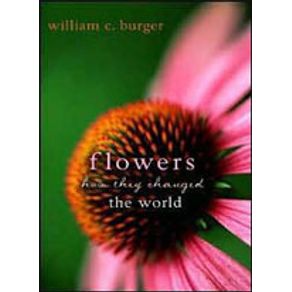The world would be a pretty drab place without flowers. Their bright cheery colors help make our natural environment a more delightful place to be. But flowers in all their beautiful variations didn't evolve just for the viewing pleasure of the later-developing human race. What are flowers really for? As botanist and popular science writer William Burger makes clear in this enchanting book, the quick and simple answer is: sex. Burger emphasizes the essential role that flowers play in life's evolutionary scheme. Their bright colors and alluring shapes represent a strategy for attracting insects and inducing animals to help with pollination. This constant intermingling is nature's way of perpetuating the species and encouraging variety, so as to protect against disease and unpredictable environments. Flowers are the supreme example of nature's reproductive exuberance, ensuring the persistence of life against an onslaught of destructive forces. More significantly, Burger points out, flowers are the fundamental energy resource for most of the biosphere. Since they energize themselves by capturing the energy of sunlight, they provide a vital link in the chain of life, especially for animals and humans, which depend on other organisms to nourish and energize them. Without the existence of flowering plants, human survival would be in jeopardy. Finally, Burger goes on to show the paramount importance of a few species of plants that have served not only as the basis of agriculture, but, in doing so, have enabled human civilization to thrive. Even today, in our complex technological world, it is the flowering plants that provide us with nearly all the vegetable energy that sustains us. Written with clarity, wit, and engaging enthusiasm for the marvels of our fragile ecosystem, Flowers will make you stop and smell the roses, with a new appreciation of their crucial role in the web of life.


